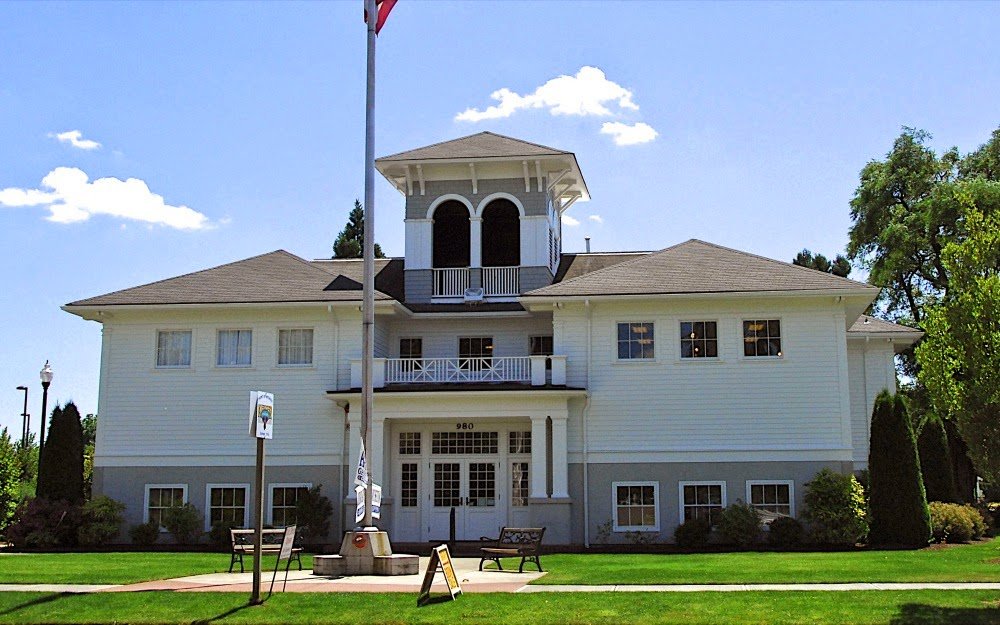World Events
- Canada’s Constitution Act severs political ties to Great Britain and establishes a Bill of Rights.
- British territory, the Falklands islands, is invaded by Argentina. Two months later, the Argentines surrender to British forces.
- The Vietnam Memorial is dedicated in Washington, D.C. The eye-level, marble panels list names of 58,000 Americans who died or are MIA in combat that ended in 1975.
- An Air Florida flight crashes into Washington, DC 14th Street Bridge, killing 78. The same day, a Washington Metro train derails and 3 passengers die.
- Princess Grace dies in Monaco when the car she is driving summersaults over a cliff.
- Three deaths near Chicago are traced to poison inserted in Tylenol capsules, criminal never identified. Tamper-proof, sealed tops now protect consumers of foods and medicines.
- The Commodore 64 8-bit home computer is released, becoming the best-selling computer model. The first computer virus is found, infecting Apple II via floppy disk. Sony launches first CD player.
- “E.T.: The Extra-Terrestrial” is released in movie theaters. The Academy Awards: “Gandhi”(US), “To Begin Again” (Spain). Prize-winning Book: Rabbit is Rich, John Updike.
In Salem
Keizer is incorporated as a city in this year. Many times the City of Salem tried to annex the growing community adjacent to its city limits. Beginning in 1964, a number of Keizer residents tried to convince the others that it would be cheaper and better to form their own city. It was not until November 2, 1982, when, with the support of the nearby Clear Lake, residents voted to make Keizer a city.
The original settlement was at Keizer Bottom, near the banks of the Willamette River. The community was named after Thomas Dove Keizur, one of its first settlers. Somewhere in the translation of donation land claim records, his name was misspelled. The settlement suffered in the flood of 1861, and the inhabitants rebuilt their homes on higher ground. Other early settlers of the area were the John Zieber family, whose home was on Clear Lake, St. Paul Road. Zieber bought rights to the property in 1854 and completed the claim. Part of the house was originally a log cabin built in the late 1840s. He was the maternal grandfather of A.N. Bush, who used to stay there as a boy. Stuart Bush demolished the house in the late 1940s to replace it with a modern dwelling.
When you visit
The annual Iris Festival takes place in May and showcases Keizer’s iris-growing industry. The festival was founded by Schreiner’s Iris Gardens, one of the country’s largest retail iris growers, and has been facilitated by the Keizer Chamber of Commerce since 1987. Events include a carnival, a beer garden, craft and food vendors, a 5k walk/run, a vintage car show, and a parade.
The Keizer Heritage Museum is inside the Keizer Heritage Community Center (above), which was formerly the 1916 Keizer School. The original location was the northwest corner of North River and Chemewa Roads, now Schoolhouse Square, a shopping mall. With city support through urban renewal funds and generous contributions of volunteer time and money, the building was moved between 1996-9. It has been completely restored and is the only public historic building in Keizer. Other tenants of the building include the Keizer Community Library, the Keizer Art Association and gallery, and the Keizer Chamber of Commerce.
Other events
- Susan Miller, our first female mayor, is elected. In an interview for Salemhistory website, she attributed her successful campaign to the incredible commitment of hundreds of campaign volunteers and the campaign’s ability to excite Salem citizens about the community’s future. Her accomplishments as mayor included her efforts to acquire 22 acres of waterfront property on the Willamette River, known today as Riverfront Park. On an international level, sister-city relations were established with Simferopol in the then Soviet Union and with Kawagoe in Japan.
- Governor Atiyeh dedicates the new pagoda/bandstand in Willson Park. This new structure is similar to the original bandstand given by Joseph H. Albert. His home was on Winter Street, just across Court Street from the park.
 |
| Former First National Bank |
- The imposing First National Bank at Chemeketa and Liberty Streets, designed by Pietro Belluschi, becomes the First Interstate Bank. This institution closed in 1996 and it has remained empty. The owners, wishing to demolish this prominent building in the Salem Historic Downtown Historic District, obtained permission from the Historic Landmarks Commission. The architects presented plans for new mixed-use development that would include the lot to east where the former City Hall stood. By 2014, the project had not begun.
- After 1982, housing developments took over most of the land in south Salem formerly used for prune orchards. Salem’s involvement with prunes was chiefly with Italian, or “purple plum,” prunes. In the depression of the 1930’s, these canned prunes were the cheapest fruit one could buy, but in later years the market swung to pears and peaches, and fewer prunes were canned in Salem depressing the value of the orchards. Many residential homesteads in the Morningside neighborhood contain at least one old tree to recall the orchard that thrived there.
- The YWCA receives the Salem Human Rights Award for its work with Southeast Asian refugees.
- Mission Mill Museum Association and Salem Art Association enter an agreement to turn the mill into a center for research and development of textiles known as Northwest Textile Center.
- As enrollment grew at Chemeketa Community College, so did the number of programs offered. In the eight years between 1974 and 1982, the campus added six new buildings to house the growing enrollment and the new programs. To better serve the district’s population, the Dallas, Santiam, McMinnville and Woodburn campuses were established.
- Waldo Middle School, in the Lansing neighborhood, was selected to pilot computer assisted instruction at the middle school level, receiving four Apple II+ computers, the first in the district. Apple distributed many computers to schools across the nation at this time, fostering a loyalty among teachers that continues thirty years later.
- The Statesman Journal records that Ernest Clark, Sr., Salem’s oldest native-born son, rode as Grand Marshall in the city’s celebration of the 125th anniversary of its founding by Methodist missionaries.

